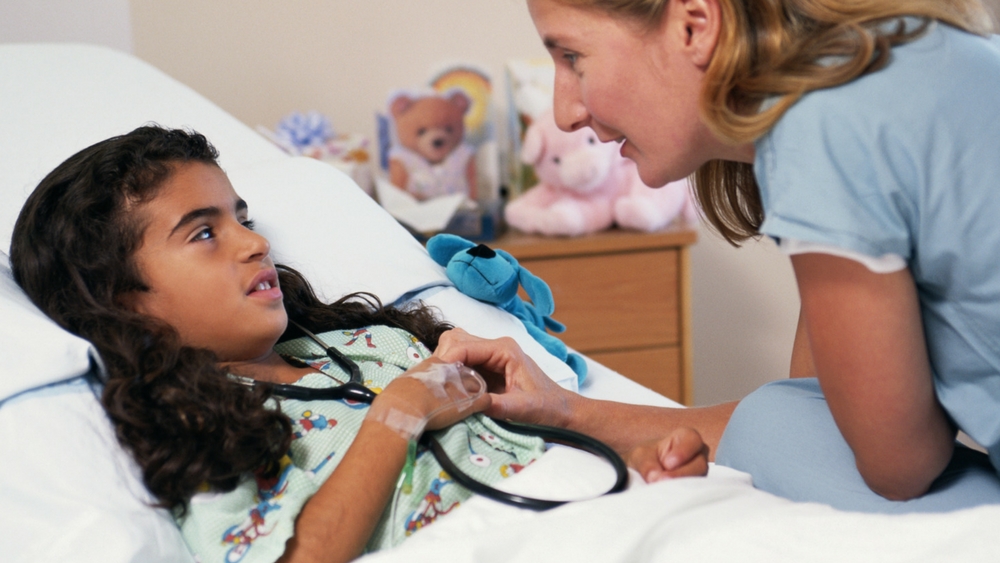Choosing Your Nursing Track: Nursing Education or Global Nursing
Many who decide to become nurses have wanted to be in this career for quite some time. They feel a calling to serve others, even when the situation may be difficult.
“I wanted to be a nurse ever since I was a little girl,” OBU Nursing Assistant Professor Megan Smith said.
When it comes to choosing a specialty track, the decision can be more difficult. Earning your Master of Science in Nursing degree further educates and prepares you for your role as a leader in the health care industry. Another benefit of earning your master’s is being qualified for positions that may otherwise be out of reach without further education.
“Having an MSN will open doors for you,” OBU master’s nursing student Sheila Metzger said.
Determining the Right Nursing Specialty
The options for nursing specialties can seem endless. You should consider your strengths and what you enjoy the most before choosing a specific track. “The most important thing is that you follow your heart,” OBU Associate Dean and Professor of Nursing Dr. Robbie Henson said. “Your heart is smarter than your head and has a wisdom your brain will never have.”
Henson suggests considering what energizes you in your work. “Work in areas where you have a passion,” Henson said. “Those are the things that ultimately direct you toward the next level.”

OBU Nursing Specialty Options
At OBU, we offer two specializations in our MSN program: nursing education and global nursing.
“An MSN degree builds on the baccalaureate degree but allows the individual to expand their knowledge and explore an area of expertise,” OBU Dean and Professor of Nursing Dr. Lepaine Sharp-McHenry said. “This expertise can include practice, administration, education, and more.”
Nursing Education

“If you’re passionate about making an impact on the future of the nursing profession, nursing education is definitely a track people should consider,” Smith said.
Some people innately enjoy teaching, while others dislike it. The nursing education track concentrates on teaching students how to become an innovative leader, while learning nursing education principles and skills in an exciting, contemporary environment.
“After my children graduated high school, I knew it was time for me to return to school,” OBU master’s nursing student Julie Nevins said. “Nursing education was a blend of what I was doing but also combined my passion for education.”
While some nurses may already be in a teaching role, these classes will provide further education for best practices. “What they gain from this master’s program is a better understanding of curriculum, educational experience, good ways to evaluate students, and more,” Henson said.
Global Nursing
If you’re intrigued by meeting unique needs and learning uncommon ways of answering issues, global nursing is a wonderful option. This track is appropriate for those who want to help diverse groups and who have an interest in developing healthy communities, illness prevention, studying disease patterns and direct interventions, and more. You will gain the expertise and experience needed to develop and guide health care systems within cross-cultural populations.
It should be noted that global nursing doesn’t necessarily mean you will need to travel abroad. The United States is largely diverse in cultures, ethnicities, and socioeconomic statuses. This focus will teach a nurse to work with diverse populations both stateside and overseas.
Curriculum Comparison and Differences between Education and Global
Both the global nursing and nursing education require 35 hours to complete the degree. There are two courses distinct to each degree track. The final practicum and capstone classes comprise the biggest difference between the two tracks. These courses narrow in focus, concentrating on either education or global nursing.

While most students determine a single focus in which to earn their degrees, others may decide to complete both specialties.
Metzger plans to take advantage of both tracks. She is currently working toward her global nursing degree but thinks she will come back to earn her nursing education certificate later in life. She plans to work abroad and then potentially finish her career in the United States teaching students.
Typical Jobs for Global Nursing Focus
There are many different career paths for those graduating with a global nursing specialty, including community clinics, public health clinics, short-term or long-term missions, or the Emergency Department.
Henson shares that one of her recent graduates just switched jobs and is now working at Crossings Community Clinic. In this role, she will serve a diverse group of people while staying in the heart of Oklahoma City.
Metzger is specifically looking to work in third world countries. She is very passionate about global nursing and paints a picture of how different it is than nursing in the United States. Metzger explains how ordinary things like running a blood test are not available in a third world country. “In learning global nursing I may learn alternative ways to find out how to read someone’s blood sugar,” Metzger said. “This is sometimes called Village medicine, and things like that are what I’m hoping to learn.”
Metzger explains how her global nursing class has a diverse variety of people seeking different career paths. While her passion is in mission work, others plan to use what they learn in America. “They are looking to work with diverse groups in our very own country,” Metzger said. “We have many immigrants, and their cultures are different. Nurses must be educated to work with people different from themselves.”
Typical Jobs for Nursing Education Focus
There are many jobs for those entering the nursing education field. Many students serve as a clinical educator in a hospital setting, or in a leadership role on their unit, as a school nurse, or doing adjunct work for an academic institution.
“With the continuing shortage of nursing faculty, having an MSN degree with a nursing education specialty is becoming even more important to address the increasing demand for nurse educators,” Dr. Sharp-McHenry said.
Smith agreed, saying, “The job outlook for nursing educators is pretty positive and there are always more education jobs in the academic world than what we have qualified people for.”
A nursing education focused MSN degree also serves as an ideal starting place for an academic career long-term. It can be a foundation for a doctoral degree if you want to teach at the master’s or doctoral level.
Nevins believes this was the necessary next step for her in her career goals. “I have always wanted my PhD. I see the MSN being the next step to earning my doctorate, ” Nevins said. “I know I’ve made the right decision. The support I have received at OBU will open a lot of doors for me. I’ve had a great experience so I’m looking forward to the possibilities the degree provides.”
“You decide on a specialty because your heart calls you,” Henson said. “Your career will never be work if you’re doing what your heart is telling you to do.”
Learn more about the MSN program and which specialty will fulfill your calling in life.
